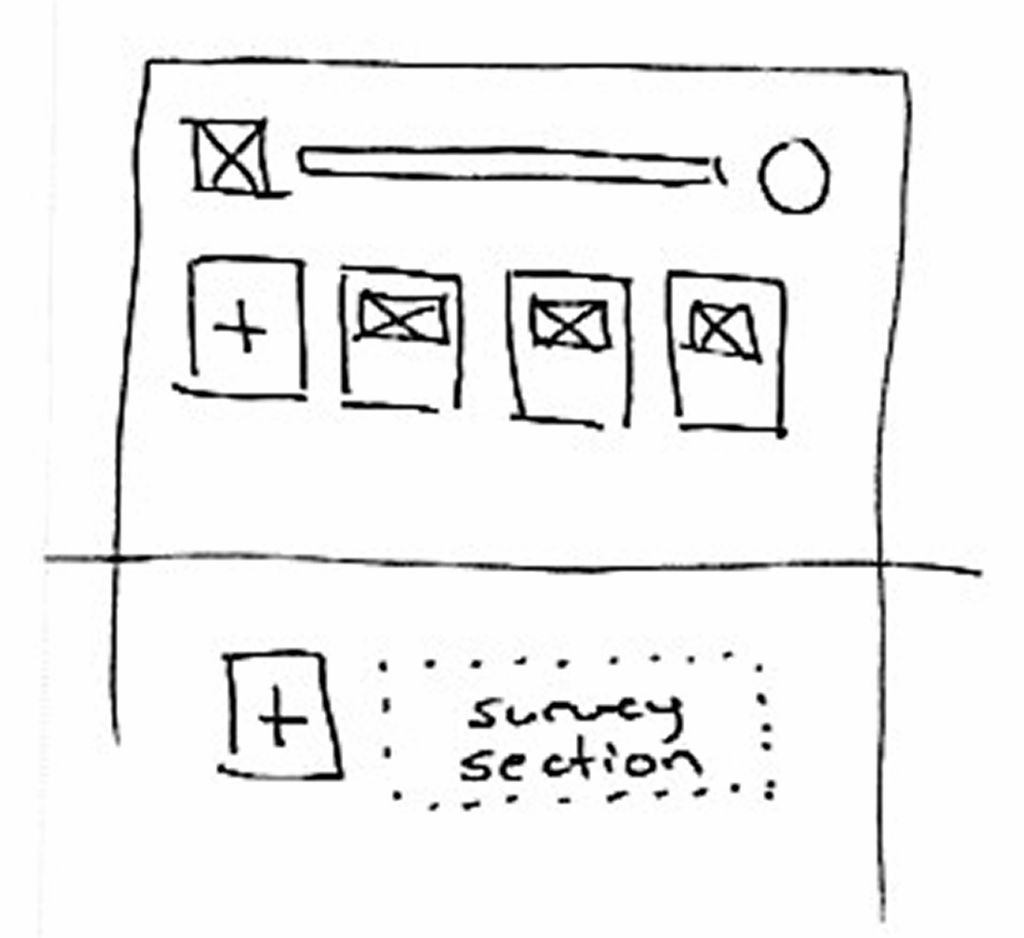This is an ongoing project to create a platform for tabletop game enthusiasts in Seattle to host and attend events within their community.
The platform relies solely on user generated content, this fact will be at the core of most of the design decisions made during the planning phase.
The primary CTA for the website is the event creation button. Events will be the lifeblood of the platform, thus it should be as easy as possible the post them. The event creation button appears on the front page, as well as on the user account page and is given emphasis with the use of position and color. The button’s shape is the same as the event card that appears across the site in order to create a visual link between the action of creating an event and the final product.
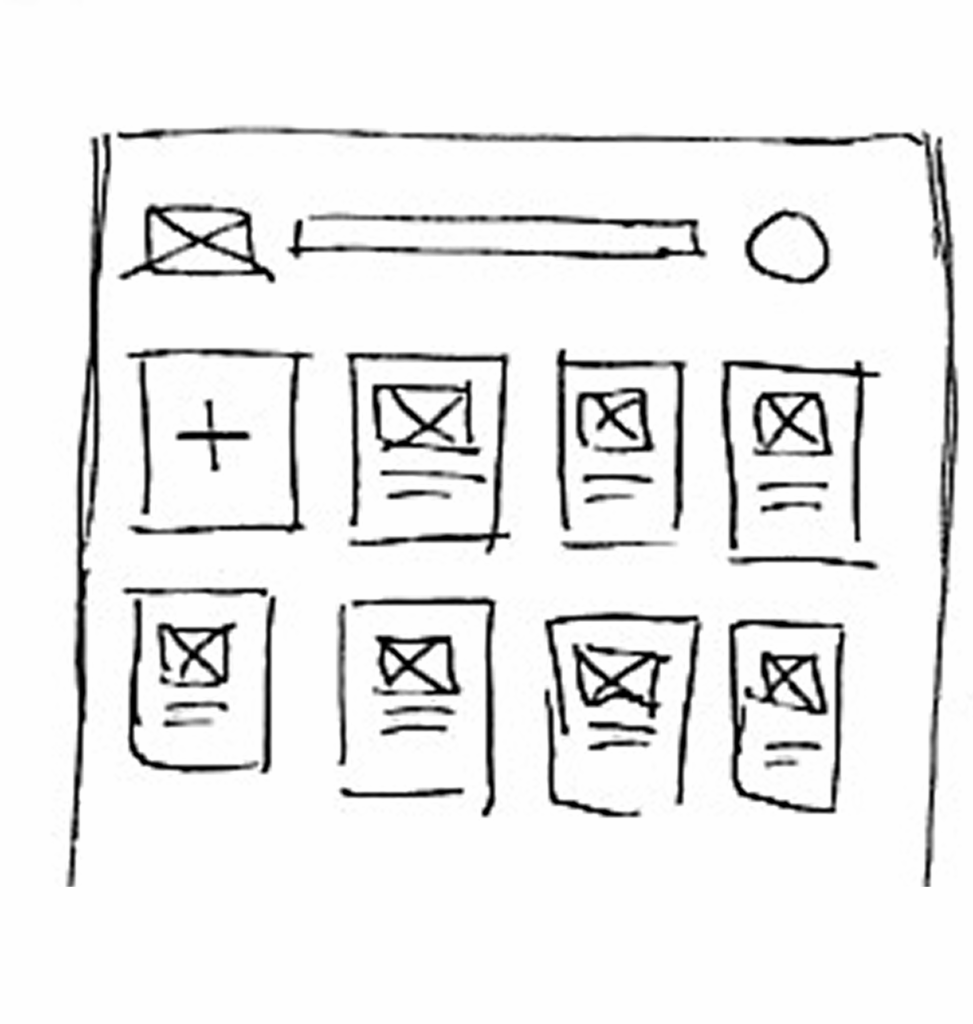
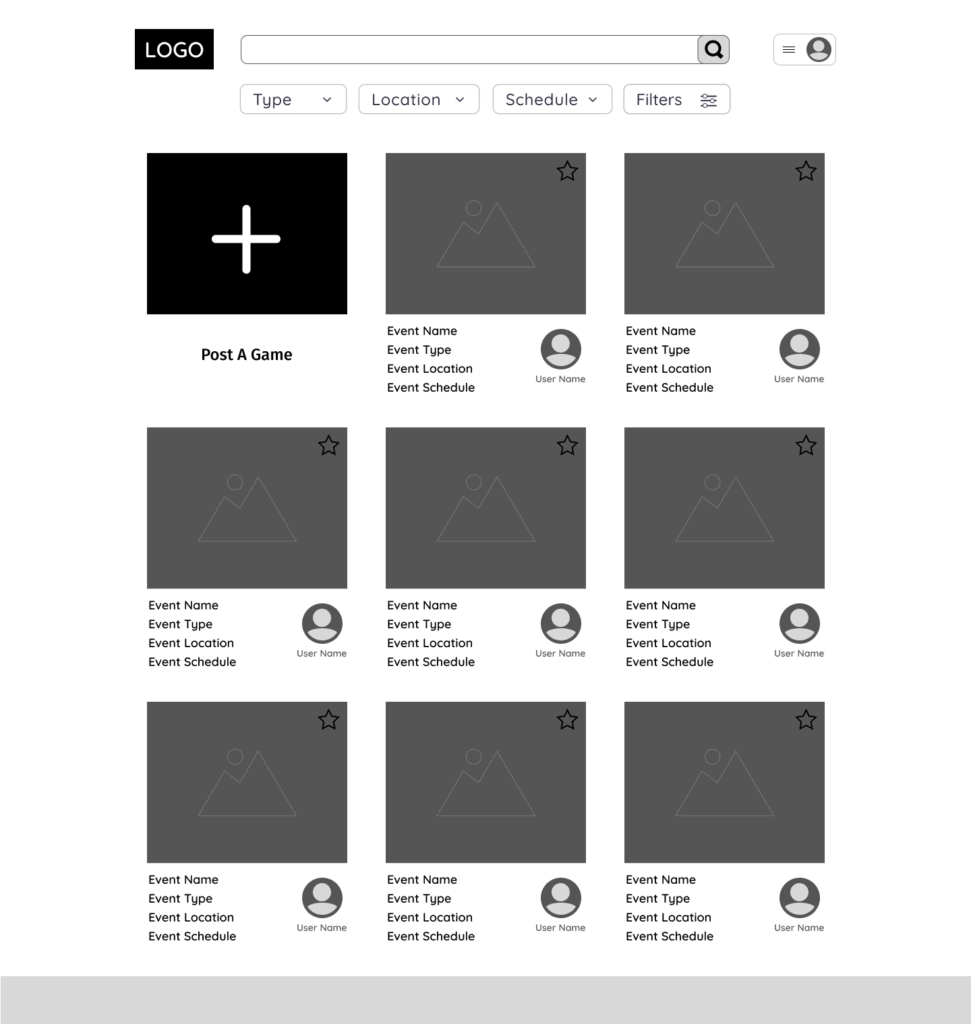
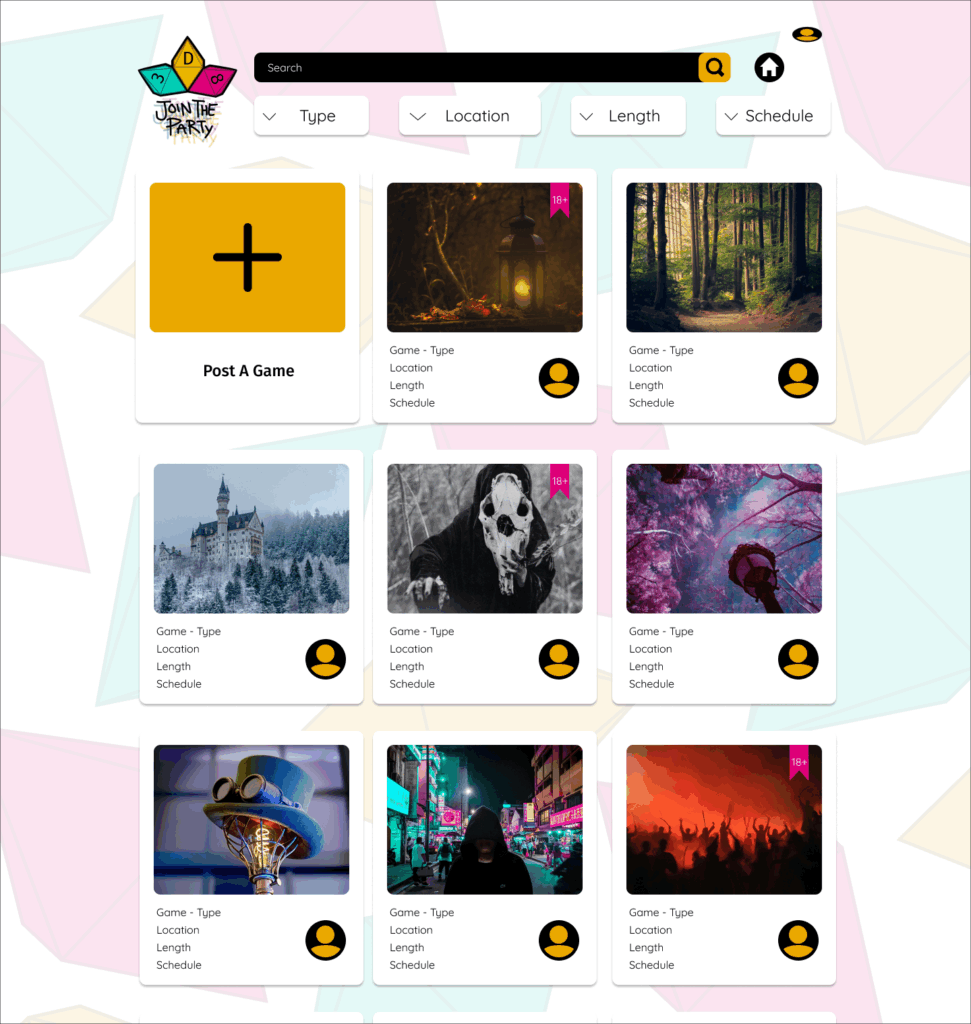
The event creation page provides user with a list of required details presented in the form of dropdown menus to reduce errors and confusion. The major deviation from this is the description field. Early on I decided that attempting to list all possible game titles would be nearly impossible. The tabletop game space is broad and constantly expanding, with independent developers and home grown systems being a core element of the community. My solution was to have the name and description of the game be manually entered by the user. To aid with error reduction example text is provided and the field is mandatory.
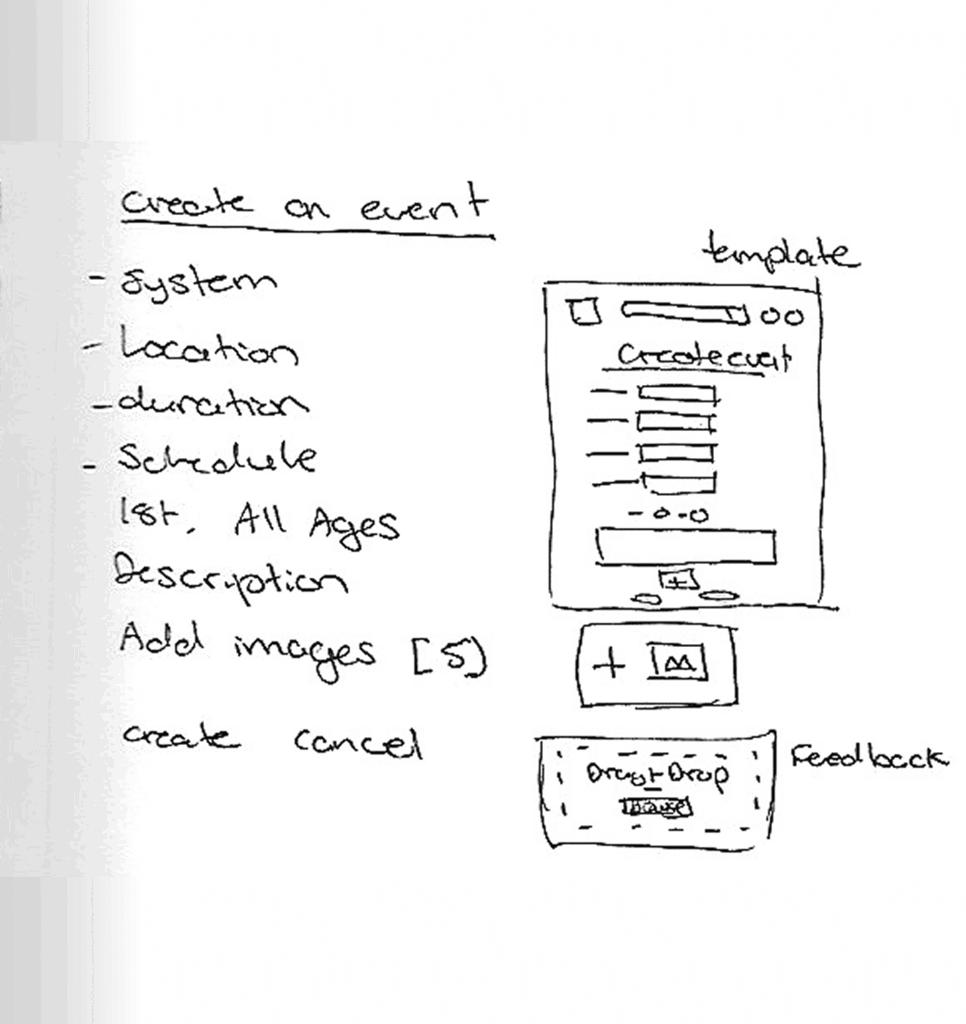
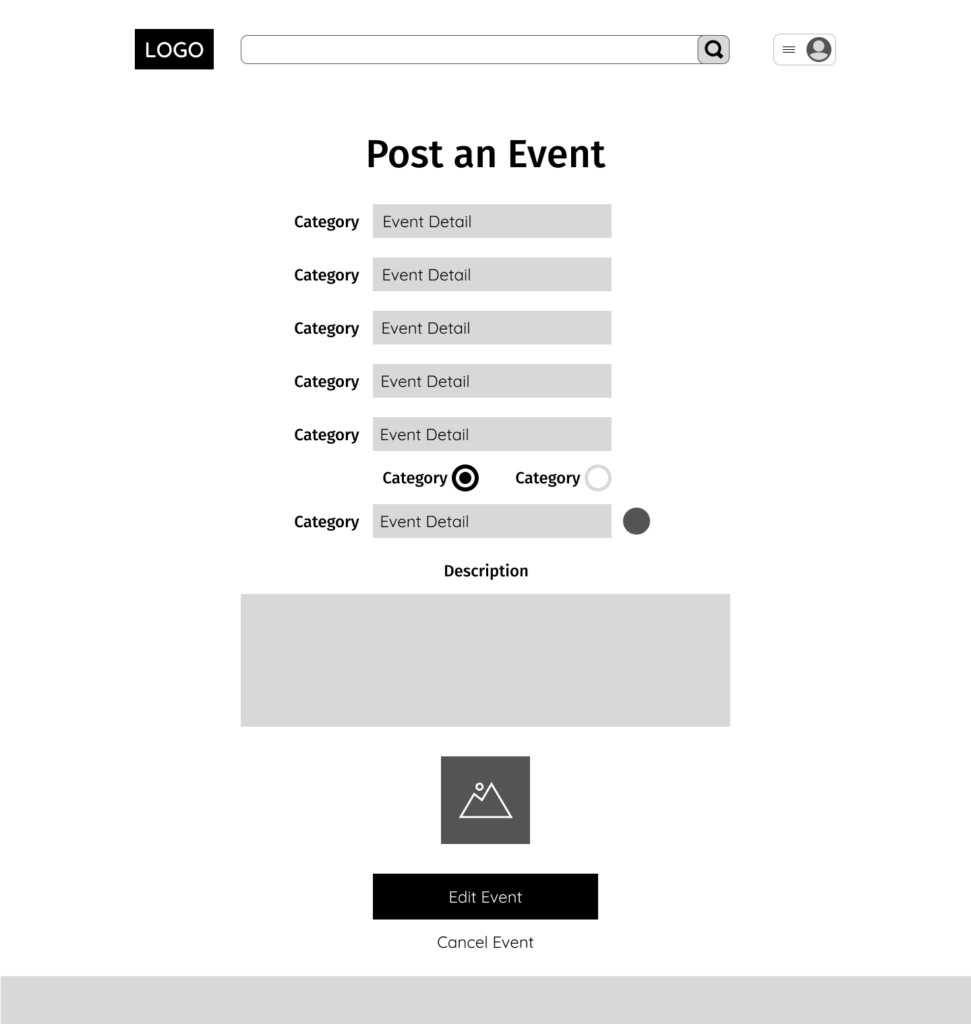
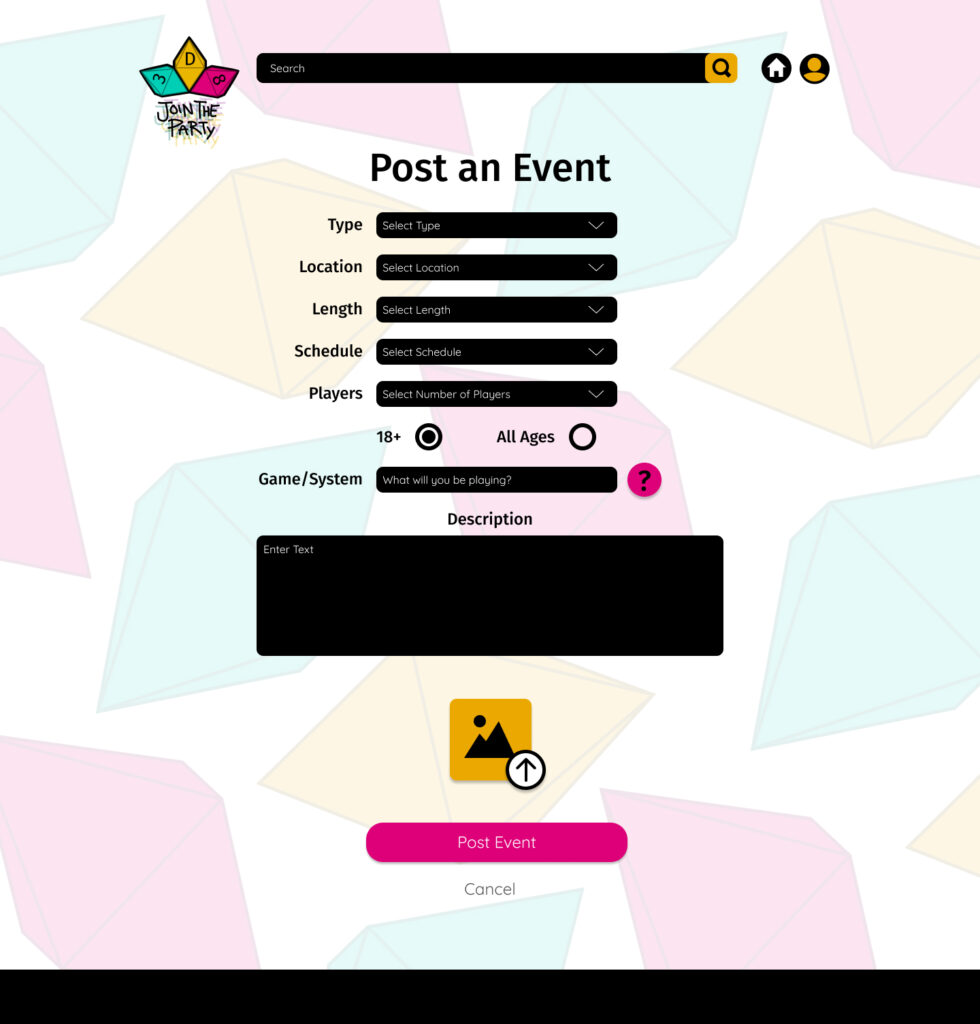
Hosts are able to personalize their event with an image carousel as well as in the description field. Both the use of images as the primary feature, and preset details on the event cards were chosen to reduce cognitive load for attendees. Potential attendees will be cycling through multiple entries and scanning for information. The need to read detailed descriptions is hidden by a layer of interaction.
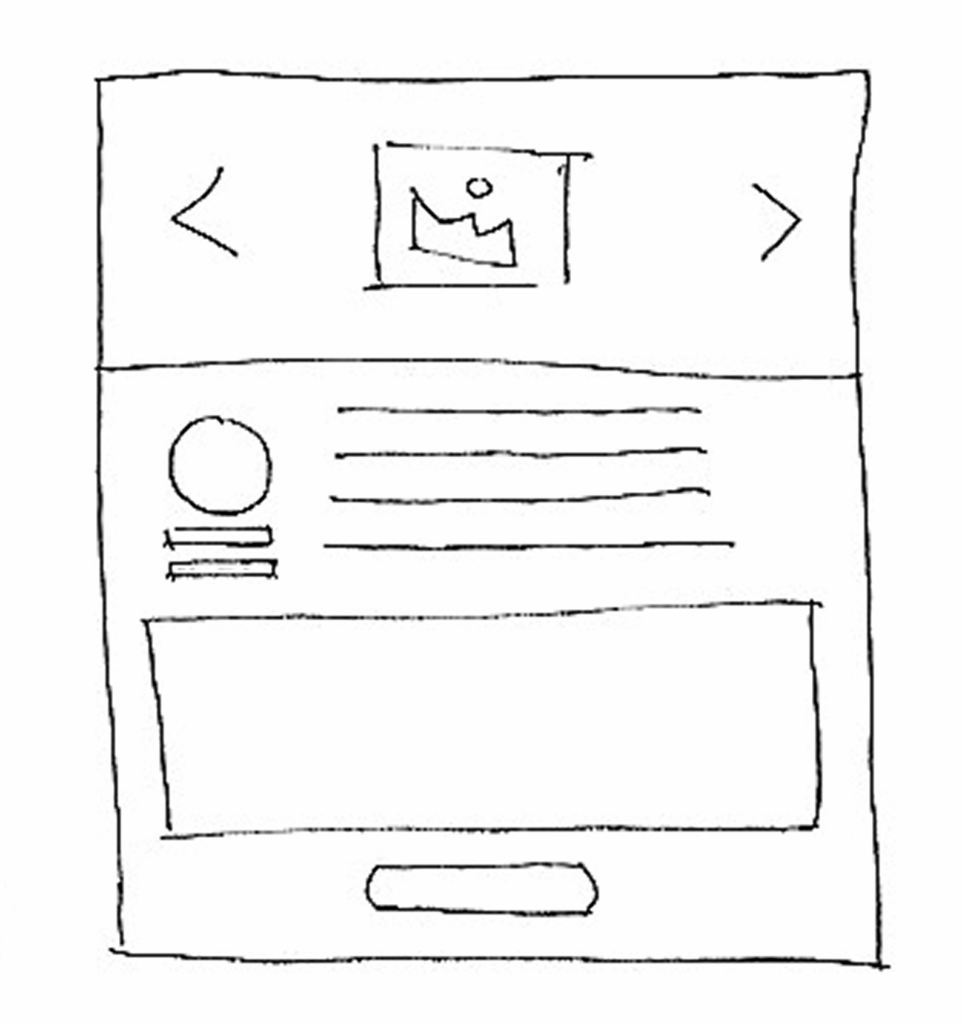
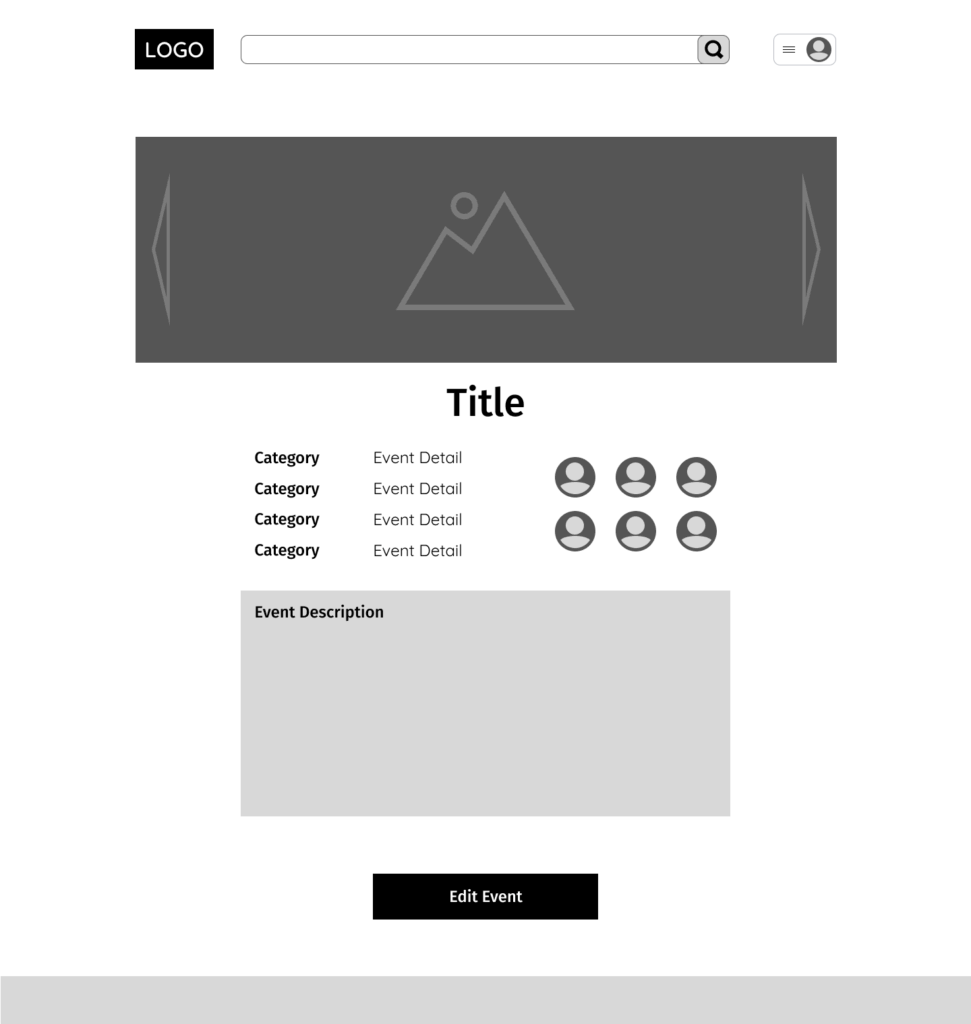
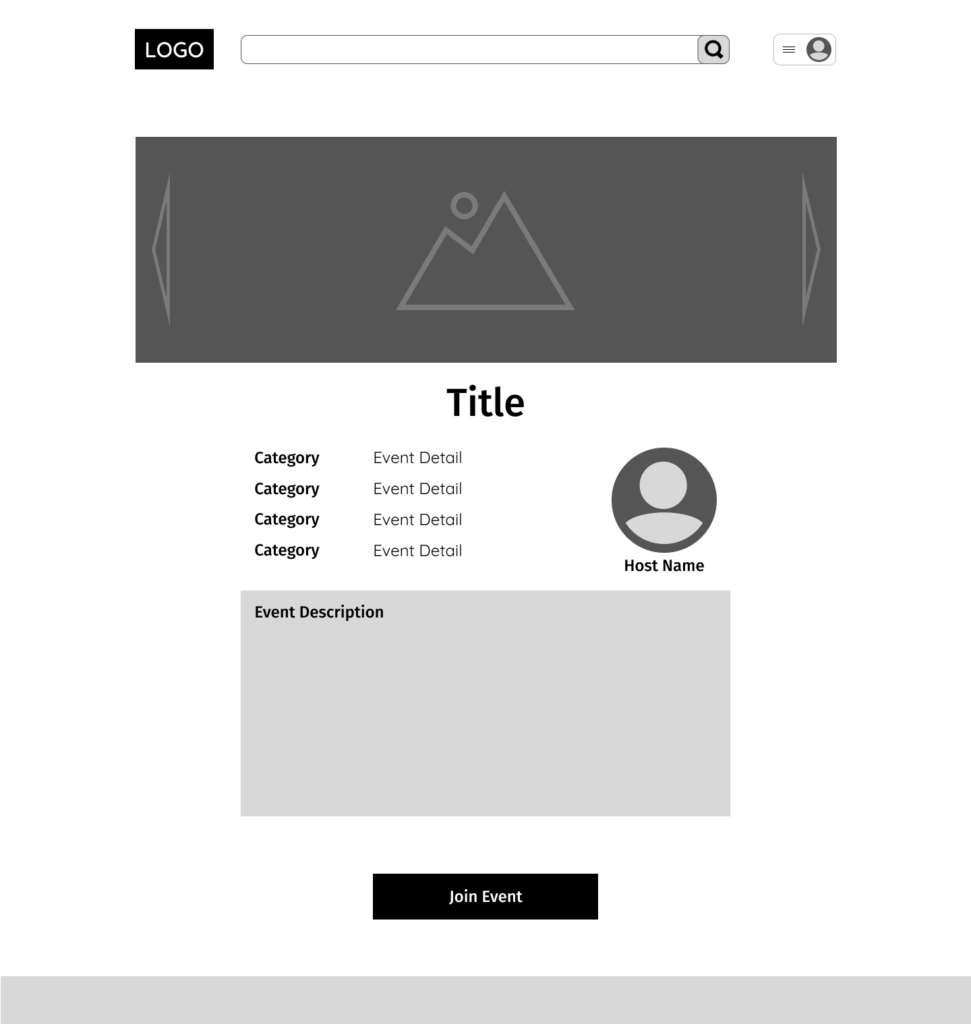
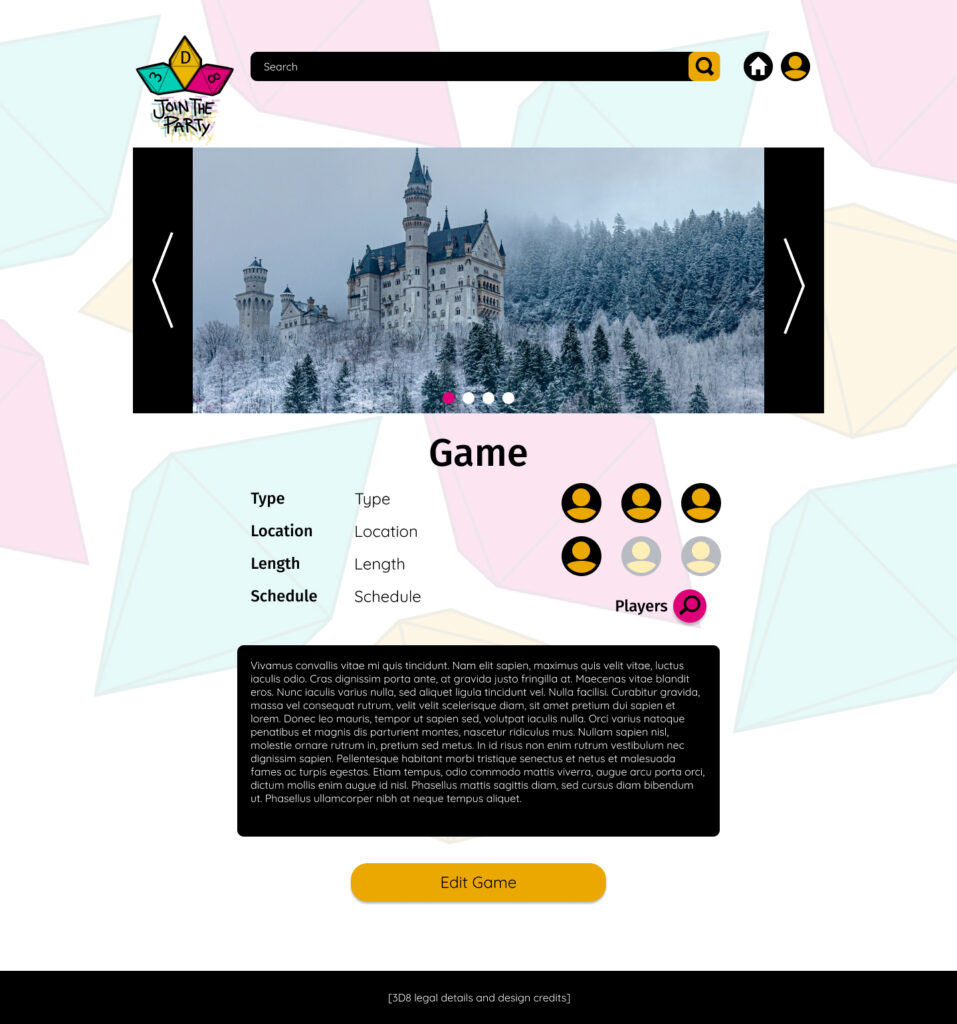
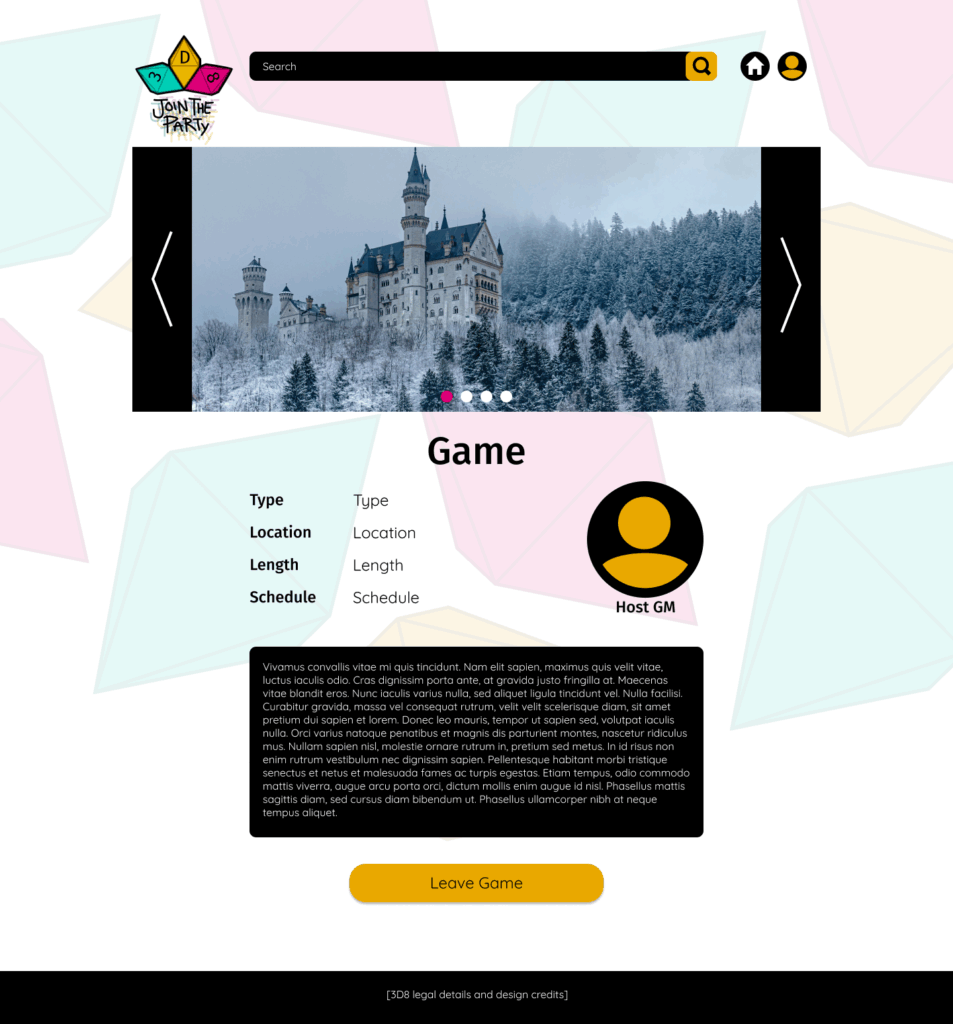
The experience for potential attendees is intentionally more complex than that of hosts. The tabletop game space differs from similar marketplaces in that the number of hosts will always be significantly less than that of attendees, and space at events will been scarce. Success in this situation is measured by the number of people who physically attend an event, not the number of sign-ups.
Joining an event takes more effort than leaving, full event descriptions are kept behind a layer of interaction, hosts can set limits on their event size, and specify if it’s 18+ or “All Ages”. Hosts will be the most hesitant users, giving them a heightened sense of control over their content is vital.
If a user must put in more effort to locate and join a game, their sense of ownership will be greater and they are more likely to physically attend the event. The more we can reduce the number of “no-call, no-shows” the more confident hosts will be in using the platform.
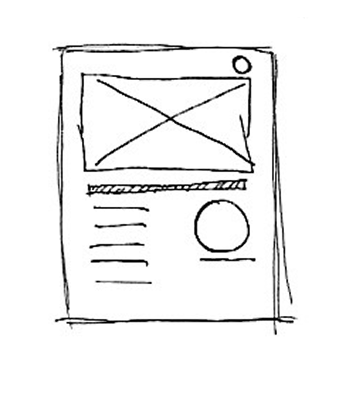
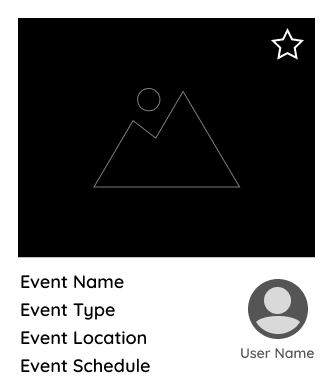
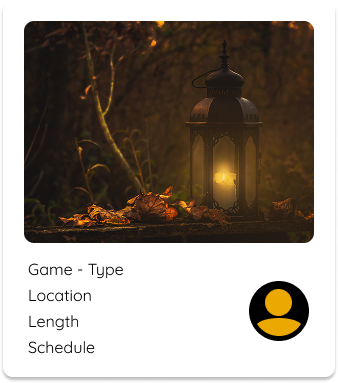
At the moment there is no internal messaging system for the platform. Users will be directed to contact one another either through email or Discord. To facilitate this, users are prompted to selected their preferred method of communication upon creating their account. It will be made clear to them that this information is given to individuals who sign up for their events and that the use of a separate email account from their main may be a good idea for privacy and security.
What’s Next
A survey will be added to the end of the available event page prompting those who were unable to find what they were looking for to take part. The survey intends to determine if any paid services should be offered through the platform. If the desire exists, a system will be design to allow community members to hire an event host.
